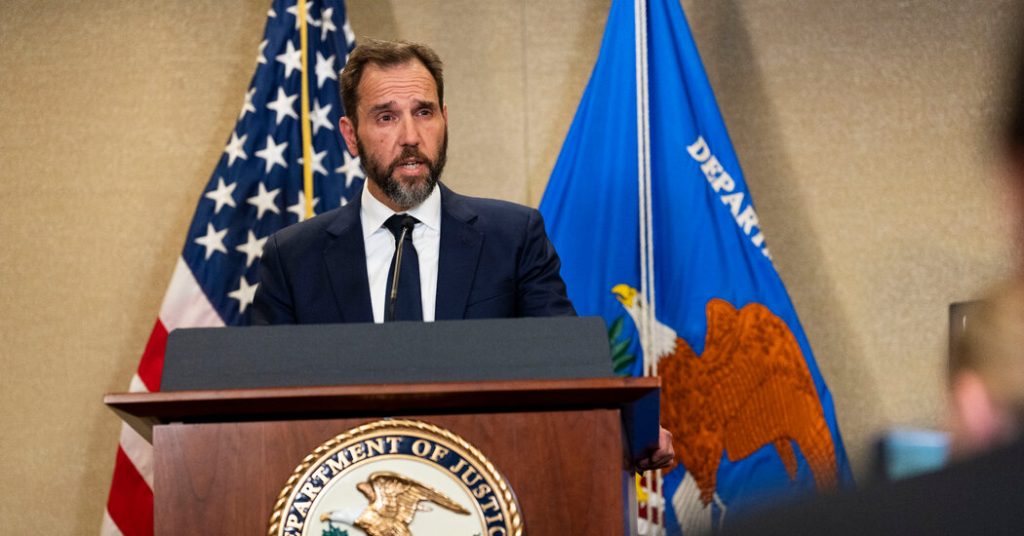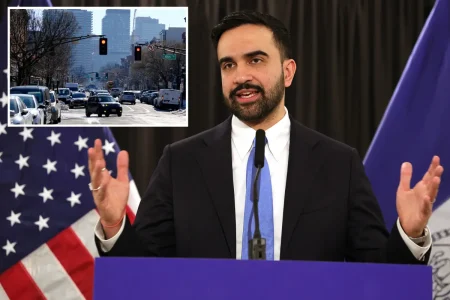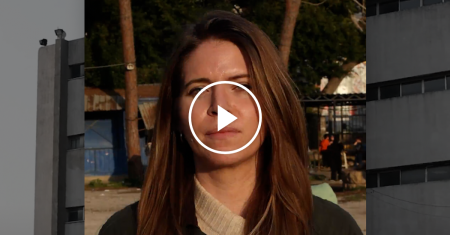The Justice Department’s release of Special Counsel Jack Smith’s final report on the classified documents and election interference investigations involving former President Donald Trump has been temporarily halted by Judge Aileen M. Cannon. This injunction, issued on Tuesday, prevents the report’s dissemination outside the Justice Department pending a decision by the 11th Circuit Court of Appeals in Atlanta, currently reviewing Judge Cannon’s earlier dismissal of the documents case. Smith’s report, intended to be a two-volume document addressing both indictments against Trump, has become a focal point of legal maneuvering, particularly given Judge Cannon’s history of controversial rulings favoring Trump. Her previous intervention in the documents investigation, later overruled by the 11th Circuit, and her summer dismissal of the entire case based on a disputed interpretation of the Attorney General’s authority to appoint a special counsel, have heightened the scrutiny surrounding her latest decision. The timing of her order, coinciding with Trump’s public praise of her as “brilliant and tough,” further fueled the ongoing debate about her impartiality.
This latest ruling has sparked significant controversy among legal experts who question Judge Cannon’s jurisdiction in the matter. Given that the documents case was dismissed and is currently under appeal, many argue that she no longer holds the authority to impede the release of the special counsel’s report, particularly as portions of the report pertain to the separate election interference case heard by a different judge. Critics contend that her continued involvement in the matter represents an overreach of her judicial power and a disregard for the standard legal process, echoing concerns raised during her earlier interventions in the investigation. The unusual circumstances of a trial judge retaining influence over a case under appeal, coupled with Trump’s public commendation of Judge Cannon, further contribute to the perception of potential bias and the erosion of public trust in the judicial process.
The scramble to suppress the report’s release began on Monday with a multi-pronged effort by Trump’s legal team and those representing his co-defendants, Walt Nauta and Carlos De Oliveira. Characterizing the report as a “one-sided” and “politically motivated attack,” they initiated actions on multiple fronts to prevent its public dissemination. Trump’s lawyers directly petitioned Attorney General Merrick Garland to withhold the report, while lawyers for Nauta and De Oliveira sought an emergency order from Judge Cannon, despite the case no longer being under her purview. This strategy continued on Tuesday with a similar request filed before the 11th Circuit, with Trump seeking to join their motion before Judge Cannon. These coordinated efforts underscore the perceived threat posed by the report’s potential revelations and highlight the ongoing legal battles surrounding the investigations.
The purpose and handling of special counsel reports are governed by Justice Department regulations established after the controversial release of Kenneth Starr’s report on President Clinton. These regulations stipulate that the report, submitted to the Attorney General, explains the rationale behind charging decisions. While initially deemed “confidential,” the Attorney General holds the discretion to release the report publicly. Precedent suggests that reports concluding high-profile investigations are often intended for public consumption, and Attorneys General have routinely exercised this discretion, including in the cases of John Durham’s investigation into the Russia probe and Robert K. Hur’s review of President Biden’s handling of classified documents. Garland had previously indicated his intention to follow this established practice.
Given the dismissal of both the documents and election interference cases against Trump, Smith’s report represents his final opportunity to present any new evidence or details related to either investigation. However, considering the extensive information already disclosed in the indictments and subsequent court filings, the likelihood of substantial new revelations remains uncertain. Despite this, Trump’s lawyers expressed concern over a draft of the report, citing its characterization of Trump harboring a “criminal design” and leading “criminal conspiracies,” allegations that echo the charges outlined in the documents indictment. This preemptive objection highlights the potential political ramifications of the report’s release, regardless of the presence of significantly new information.
Ultimately, the controversy surrounding the report’s release underscores the complex interplay of legal and political considerations in this high-profile case. Judge Cannon’s unusual intervention, the strategic efforts by Trump’s legal team to suppress the report, and the potential political implications of its contents contribute to the ongoing debate about transparency, accountability, and the integrity of the judicial process. The decision by the 11th Circuit will not only determine the fate of the report but also shape the public’s understanding of the investigations and their potential consequences for the former president and the nation. This ongoing legal saga continues to grip public attention, raising questions about the balance of power, the independence of the judiciary, and the future of accountability for those in positions of power.












